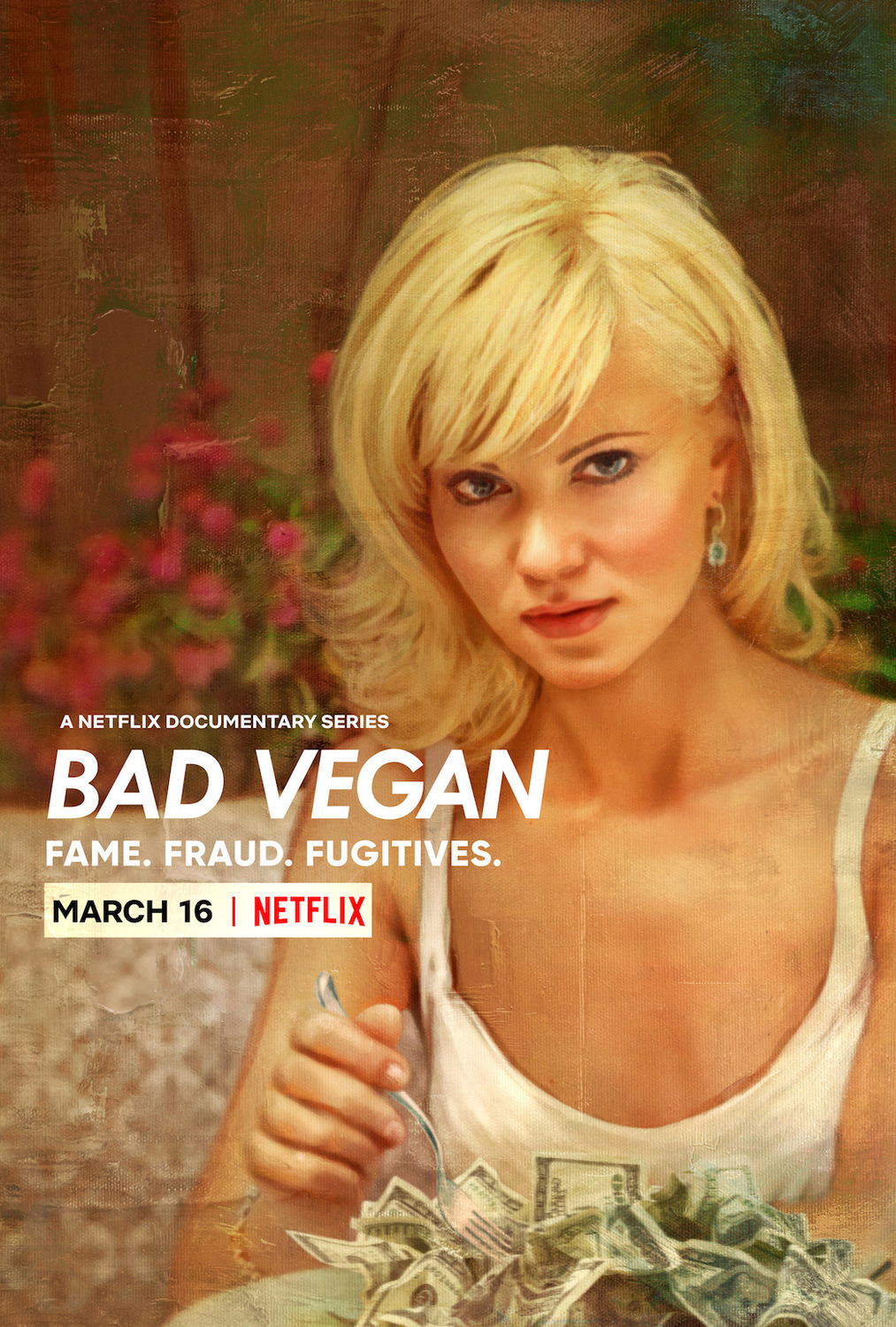Let’s talk about something that might make you raise an eyebrow or two: bad vegan. Yep, you heard that right. While going vegan is often seen as this super-positive lifestyle choice, there’s a darker side to it that not many people talk about. It’s like flipping over the rock and discovering what’s hiding underneath. Some vegans out there might be doing more harm than good, whether it’s to themselves, the environment, or even the vegan community as a whole. So, what exactly does it mean to be a bad vegan? Let’s dive in and find out.
Now, before you get all defensive, we’re not here to bash anyone. This is more of an exploration into the complexities of the vegan world. Sure, most vegans are out there trying to save animals, reduce their carbon footprint, and eat healthier. But let’s face it, not everyone follows the rules—or the spirit—of the vegan lifestyle. Some folks might jump on the bandwagon without really understanding what it entails, or worse, they might start preaching about it without doing their homework.
So, if you’re curious about what makes a vegan “bad” and how you can avoid falling into that trap, stick around. We’ll break it down for you, no judgment zone, and give you the tools to navigate this tricky terrain. Whether you’re already vegan or just thinking about making the switch, this article’s got your back.
Read also:Magic Johnsons New Wife 2024 The Inside Story You Wont Want To Miss
What Exactly is a Bad Vegan?
Let’s start with the basics. A bad vegan isn’t necessarily someone who eats a piece of cheese or accidentally orders the wrong thing at a restaurant. It’s more about the mindset, behavior, and approach to the lifestyle. Think of it like this: if you’re vegan just for the sake of being trendy or using it as a way to criticize others, you might be heading down the wrong path.
Some common traits of a bad vegan include extreme judgmental attitudes, lack of knowledge about proper nutrition, and even supporting unethical practices under the guise of being plant-based. It’s important to remember that being vegan is about making conscious choices, not just ticking boxes on a list.
Why Does Bad Veganism Matter?
Here’s the deal: bad veganism can have real consequences. For one, it can give the entire vegan community a bad reputation. When someone associates veganism with judgmental attitudes or misinformation, it can turn people off from even considering the lifestyle. Plus, if vegans aren’t careful about their choices, they might end up harming the environment or their own health.
Take, for example, the rise of ultra-processed vegan foods. Sure, they’re technically plant-based, but that doesn’t mean they’re good for you—or the planet. Some of these products are packed with additives and come with a hefty carbon footprint. So, if you’re eating nothing but vegan junk food, are you really living up to the ideals of the lifestyle?
Common Traits of Bad Vegans
1. The Judgmental Vegan
We’ve all met that one person who seems to have an opinion on everything you do. Judgmental vegans are notorious for shaming others for not following the same path. Whether it’s calling out someone for eating meat or lecturing them about their choices, this behavior can be incredibly off-putting.
Here’s the thing: change happens when people feel inspired, not when they feel attacked. Being a judgmental vegan can actually push people away from considering veganism, which defeats the whole purpose.
Read also:Selling Sunset Season 8 New Girl Meet The Hottest Addition To The Cast
2. The Nutritional Negligent
Another red flag is when vegans don’t pay attention to their nutritional needs. Yes, you can be vegan and still be unhealthy. In fact, some vegans end up with deficiencies in things like vitamin B12, iron, and omega-3 fatty acids because they don’t plan their diets properly.
This isn’t just about personal health, either. When people see vegans struggling with nutrition-related issues, it can reinforce negative stereotypes about the lifestyle. So, it’s crucial to do your homework and make sure you’re getting all the nutrients your body needs.
3. The Eco-Hypocrite
Then there are the eco-hypocrites—vegans who claim to care about the environment but don’t actually walk the walk. For instance, they might buy tons of packaged vegan snacks or travel the world in private jets while claiming to be saving the planet. It’s all about the optics, but the reality doesn’t match up.
This kind of behavior can undermine the credibility of the vegan movement and make it harder for others to take it seriously. If you’re going to call yourself an eco-conscious vegan, you need to back it up with actions that align with your values.
How to Avoid Being a Bad Vegan
1. Educate Yourself
The first step in avoiding bad veganism is to educate yourself. Read up on the science behind plant-based diets, learn about the environmental impact of different foods, and understand the ethical considerations involved in veganism. Knowledge is power, and the more informed you are, the better choices you can make.
2. Practice Empathy
Being a good vegan isn’t just about what you eat; it’s also about how you interact with others. Instead of judging people for their choices, try to approach conversations with empathy and understanding. You’ll be surprised how much more effective you can be when you lead with kindness instead of criticism.
3. Focus on Quality
When it comes to food, quality matters. Opt for whole, minimally processed ingredients whenever possible. Not only are they better for your health, but they’re also usually better for the environment. Plus, they tend to taste way better than those heavily processed alternatives.
Is Veganism Really All Good?
Now, let’s talk about the elephant in the room: is veganism really all good? While it has plenty of benefits, it’s not without its challenges. For instance, some vegan foods require a lot of water and resources to produce, which can contribute to environmental issues. Additionally, the global supply chain for certain vegan ingredients can involve exploitative labor practices.
It’s important to acknowledge these complexities and work toward solutions. Being a good vegan means being aware of these issues and doing what you can to address them, whether it’s supporting local farmers or choosing fair-trade products.
Health Impacts of Bad Veganism
Bad veganism can have serious health consequences. As we mentioned earlier, nutritional deficiencies are a real risk if you don’t plan your diet carefully. But it’s not just about what you eat—or don’t eat. Stress, anxiety, and social isolation can also be side effects of extreme veganism, especially if you’re constantly worrying about every little thing you consume.
The key is to find balance. You don’t have to be perfect all the time. It’s okay to indulge in a treat every now and then, as long as you’re making mostly healthy choices overall. Remember, the goal is to improve your health and well-being, not to stress yourself out.
Environmental Concerns with Bad Veganism
When it comes to the environment, bad veganism can do more harm than good. For example, some vegan products require massive amounts of water to produce, which can strain local resources. Additionally, the transportation of imported vegan ingredients can contribute to greenhouse gas emissions.
To minimize your impact, focus on eating locally sourced, seasonal produce whenever possible. You can also reduce waste by planning your meals carefully and composting food scraps. Small changes can make a big difference in the long run.
Social Implications of Bad Veganism
Bad veganism can also have social implications. When vegans come across as judgmental or self-righteous, it can create tension in relationships and communities. Instead of inspiring others to make positive changes, it can lead to resentment and division.
The good news is that you can be a vegan without alienating the people around you. By focusing on education, empathy, and collaboration, you can create a more inclusive and supportive environment for everyone.
Conclusion: Be the Change You Want to See
At the end of the day, being a good vegan is about more than just what you eat. It’s about living your values, treating others with respect, and making choices that align with your goals. Whether you’re new to the lifestyle or a seasoned pro, there’s always room for growth and improvement.
So, if you’re ready to take your vegan journey to the next level, here’s what you can do: educate yourself, practice empathy, and focus on quality. And don’t forget to share this article with your friends and family to help spread the word about being a good vegan. Together, we can create a more compassionate, sustainable, and healthy world for everyone.
And hey, if you’ve got any questions or comments, feel free to drop them below. Let’s keep the conversation going!
Table of Contents


